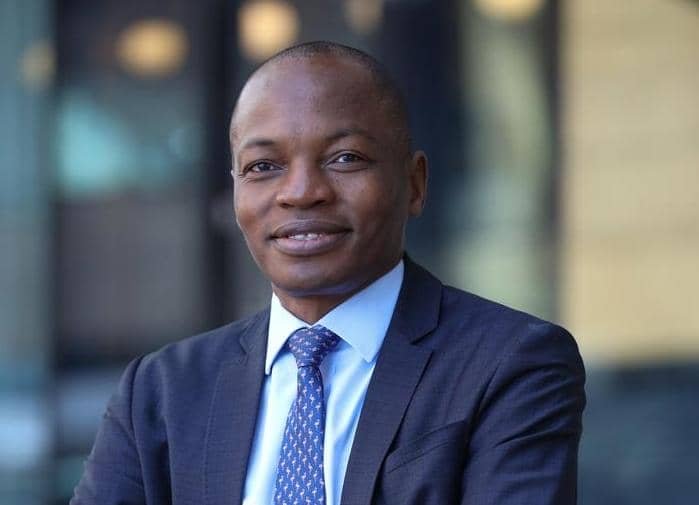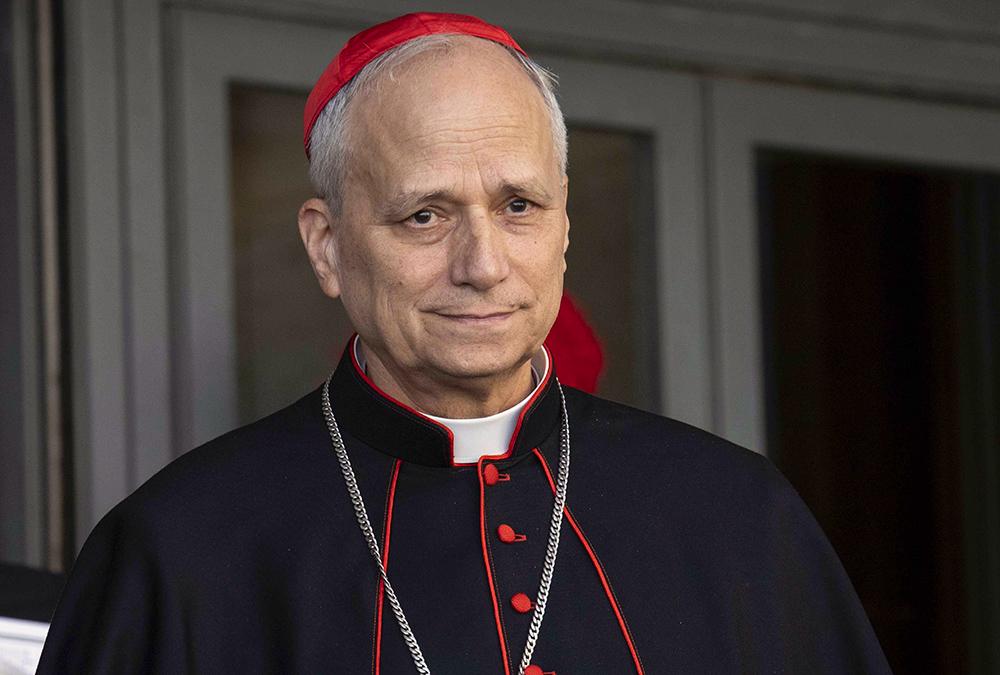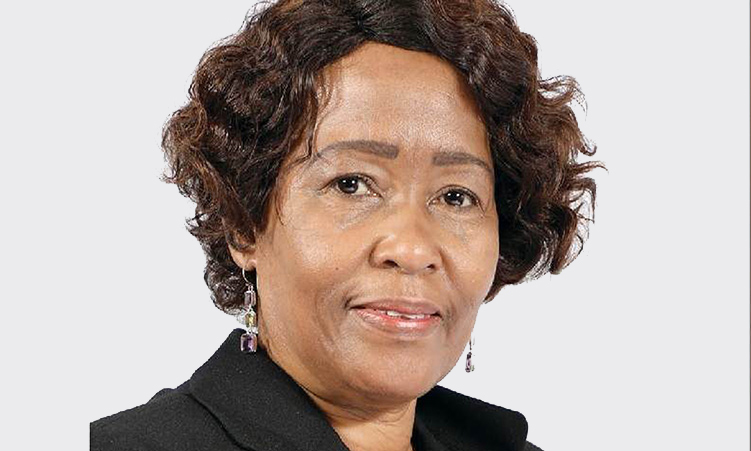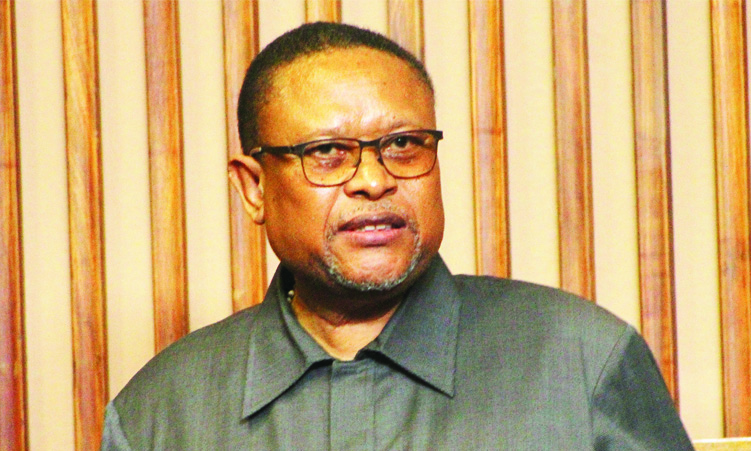I AM challenged to engage in the ongoing national debate on the need to have ‘one major, strong opposition party in Namibia’ as a response to the ruling Swapo Party.
This view is prevalent among some Namibian opposition political parties, political analysts, former prominent political figures and members of the public. The advocates and proponents of ‘one major strong opposition party’ see this as a viable proposition at a time when opposition parties are lean, if not skeletal.This is also being realised at a time when opposition parties are failing miserably to win seats during elections.Apparently the new agenda is: Vertical integration is out, alliances are in.Having been engaged with this question as a member of the progressive forces during the struggle for national liberation against apartheid South Africa, experience dictates that there are practical questions to be answered.It is of utmost importance to realise that formation of traditional political parties in Namibia prior to Independence was a dialectical response in some cases against South African colonial occupation and in other cases formed by South African colonial regime as a response to the Namibian national liberation movement.These groups include Swanu, Swapo, DTA, UDF.After independence, the only new political party formed was the Congress of Democrats (CoD).It is my submission, at least from my Swanu political background, that the operations of any political party must – as a matter of principle – be related to their political principles, orientation and ideology.In other words, it is my perspective and expectation that credible political parties are not formed in a vacuum but that their existence is dictated rather by historical and dialectical materialism.This theory postulates that the world is a unity of two opposites.In other words, it is my expectation that the existence of political parties must be for the sake of advancing certain political principles and convictions and not for the sake of convenience.During the struggle for national independence and freedom against the South African colonial occupation, the national liberation movement set for themselves the agenda of repossessing what was taken from the Namibian people.The national liberation movement adopted the policy of non-collaboration with the colonial regime as a tactic of frustrating the South African neo-colonial political dispensation in Namibia.In this process, the national liberation movement (as represented both by Swanu and Swapo) emasculated the South African neo-colonial political dispensation in Namibia to a point of fatigue.The national liberation movement denied credibility and legitimacy to the presence of the South African regime in Namibia.The opposition to the presence of South African colonial forces, firstly as nationalist forces, secondly, political and ideological proximity to each other, put both Swanu and Swapo in the same opposition camp.This is not only evidenced by the 1985/86 Ai Gams Grouping but goes as far as the 1973-75 National Convention (NC) and Namibia National Convention (NNC).It is important to note that political parties whose orientation and inclination were diametrically opposed to those of Swanu and Swapo did not join these anti-colonial platforms whose aim was to express their opposition to the South African presence in Namibia and to struggle for speedier implementation of Resolution 435.On the other hand, it must be noted that the current opposition parties such as the DTA, (Nudo and Republican Party as constituent members of DTA), MAG (as represented then by AKTUR, National Party of SWA) all participated in the South African-sponsored Turnhalle Constitutional Conference (1975), National Assembly and Council of Ministers (1979-80), Second-Tier Authorities, Transitional Government of National Unity (1985-89), and, by the definition of members of national liberation movement, they were not considered as opposition parties to the South African regime, because the constitutional measures they were advocating in Namibia with the assistance and backing of South Africa were in conflict with the principles of decolonisation as developed by the United Nations.This part of history might look to some of our people as a tumultuous event of the past that has disappeared under the bridge of history and has no bearing on the debate about opposition parties in contemporary Namibia.But as a student of a national liberation movement based on political principles, convictions and ideology who hopes to contribute to the charting of the new chapter, I beg to differ with those who hold these views.The proponents of one major strong opposition party in Namibia are treating the issue as if opposition parties are homogeneous, amorphous and amoeba-like formations without features, essentials and characteristics.The proponents are advancing their arguments as if they do not have experience of the sustainability politics of both pre-independent and post-independent opposition parties.Firstly, political parties have their own identity and uniqueness that must be recognized and therefore must not be lumped together for the sake of short-term convenience and expediency.The recognition of this identity is a catalyst to anticipate the future and predict whether the opposition politics are sustainable or not.The record of Swapo as a ruling party over the last 14 years, despite its previous progressive tradition, is not compatible with its historical text during the struggle for national liberation.An element of ideological revisionism has set in to such an extent that the pre-independence wishes, desires and aspirations are fading away.Gone are the days of comradeship, solidarity, social justice, One Namibia One Nation, mutual assistance, mutual respect, one for all and all for one.Swapo, since independence, has been infiltrated by elements who do not have the ideological understanding and sentimental attachment to the pre-independent demands, and therefore the Party’s progressive tradition is being hijacked for opportunistic and petty personal considerations.It is my submission that crime, poverty, hunger, unemployment, corruption and HIV/AIDS that are confronting the Government in particular, and Namibian people in general, are symptoms of a socio-economic and political order that can only be addressed through ideological clarity.It is therefore my submission that there is a need for a major strong opposition party in Namibia to remind Swapo of the Namibian historical text; to defend the heritage of the national liberation struggle and nurture and inculcate democratic values and principles, to enable plurality of political opinion and functional multi-party democracy.The question in my mind is whether the current opposition parties have the necessary progressive credentials to improve on the relative performance of Swapo.The answer is a big NO.Can opposition politics in Namibia in the short-term be sustained? The answer again, is a big NO.The mere fact that politics in Namibia is not issue-orientated makes it difficult for the sustainability of opposition politics.The mere fact that the joining of political parties by members is not necessarily dictated by political convictions but rather by personal gains, makes it difficult for the sustainability of opposition politics.It is no secret that before independence a sizeable number of prominent political figures, traditional leaders and businessmen/women were aligned to those parties that had a strong connection with the South African regime, and now, after Independence, are joining Swapo.This is not necessarily dictated by conviction but personal gain and the politics of the belly.Former political activists and party leaders in the opposition parties during and after Independence have either joined the ruling party or have become ‘community activists’, ‘technocrats’, businessmen/women in the name of an attempt not to disclose their political allegiance.As classic examples, a 25+ year-old prominent youth leader joined CoD twice and Swapo twice; a prominent political figure from 1960’s to 2004 joi
ned Swapo approximately three times and the DTA (NUDO) three times; another political figure stayed in the DTA for most of his life and then joined Swapo for one month (December) only to rejoin NUDO (January).These are facts and evidence to demonstrate that in Namibia either we have ideological compatibility among political parties or there is a complete lack of political conviction and understanding if, politically-speaking, parties are different, but people are treating them as if they are the same.These are not new phenomena.During the liberation struggle, the national liberation movement witnessed the spectacle of some of their supposedly staunchest members defecting to the Pretoria regime, and throwing in their miserable lot with the partitionists and supine followers of the Turnhalle’s formula for Namibia.The opposition parties are now losing to the ruling party.While, in principle, a major strong opposition party is needed, the resurgence of splinter parties with tribal undertones within opposition parties themselves; lack of policy perspectives based on ideological position; lack of leadership qualities; opportunism of moving from one party to another within a shorter period of time because of personal gains (politics of the belly), fear, intolerance, lack of financial resources, lack of human resources because of fear (remember the ‘jobs for comrades only’ and ‘acquaintance with Swapo manifesto’), lack of political convictions as well as past political history, all remain impediments and challenges facing the opposition politics in Namibia.My humble and sincere submission is that opposition parties in Namibia are heterogeneous, and as such, their internal chemistry must clearly be understood before sweeping statements on mergers, alliances and fronts are made.They have different approaches, origins, orientations and inclinations.* The author is a former lecturer and HoD at Unam.Specialist in Clinical Biochemistry (M.Sc) Marine Sciences (Ph.D) trained at the Universities of Leeds and Surrey, UK.He is also Swanu President.Views in this article are expressed in his personal capacity.The advocates and proponents of ‘one major strong opposition party’ see this as a viable proposition at a time when opposition parties are lean, if not skeletal.This is also being realised at a time when opposition parties are failing miserably to win seats during elections.Apparently the new agenda is: Vertical integration is out, alliances are in.Having been engaged with this question as a member of the progressive forces during the struggle for national liberation against apartheid South Africa, experience dictates that there are practical questions to be answered.It is of utmost importance to realise that formation of traditional political parties in Namibia prior to Independence was a dialectical response in some cases against South African colonial occupation and in other cases formed by South African colonial regime as a response to the Namibian national liberation movement.These groups include Swanu, Swapo, DTA, UDF.After independence, the only new political party formed was the Congress of Democrats (CoD).It is my submission, at least from my Swanu political background, that the operations of any political party must – as a matter of principle – be related to their political principles, orientation and ideology.In other words, it is my perspective and expectation that credible political parties are not formed in a vacuum but that their existence is dictated rather by historical and dialectical materialism.This theory postulates that the world is a unity of two opposites.In other words, it is my expectation that the existence of political parties must be for the sake of advancing certain political principles and convictions and not for the sake of convenience.During the struggle for national independence and freedom against the South African colonial occupation, the national liberation movement set for themselves the agenda of repossessing what was taken from the Namibian people.The national liberation movement adopted the policy of non-collaboration with the colonial regime as a tactic of frustrating the South African neo-colonial political dispensation in Namibia.In this process, the national liberation movement (as represented both by Swanu and Swapo) emasculated the South African neo-colonial political dispensation in Namibia to a point of fatigue.The national liberation movement denied credibility and legitimacy to the presence of the South African regime in Namibia.The opposition to the presence of South African colonial forces, firstly as nationalist forces, secondly, political and ideological proximity to each other, put both Swanu and Swapo in the same opposition camp.This is not only evidenced by the 1985/86 Ai Gams Grouping but goes as far as the 1973-75 National Convention (NC) and Namibia National Convention (NNC).It is important to note that political parties whose orientation and inclination were diametrically opposed to those of Swanu and Swapo did not join these anti-colonial platforms whose aim was to express their opposition to the South African presence in Namibia and to struggle for speedier implementation of Resolution 435.On the other hand, it must be noted that the current opposition parties such as the DTA, (Nudo and Republican Party as constituent members of DTA), MAG (as represented then by AKTUR, National Party of SWA) all participated in the South African-sponsored Turnhalle Constitutional Conference (1975), National Assembly and Council of Ministers (1979-80), Second-Tier Authorities, Transitional Government of National Unity (1985-89), and, by the definition of members of national liberation movement, they were not considered as opposition parties to the South African regime, because the constitutional measures they were advocating in Namibia with the assistance and backing of South Africa were in conflict with the principles of decolonisation as developed by the United Nations.This part of history might look to some of our people as a tumultuous event of the past that has disappeared under the bridge of history and has no bearing on the debate about opposition parties in contemporary Namibia.But as a student of a national liberation movement based on political principles, convictions and ideology who hopes to contribute to the charting of the new chapter, I beg to differ with those who hold these views.The proponents of one major strong opposition party in Namibia are treating the issue as if opposition parties are homogeneous, amorphous and amoeba-like formations without features, essentials and characteristics.The proponents are advancing their arguments as if they do not have experience of the sustainability politics of both pre-independent and post-independent opposition parties.Firstly, political parties have their own identity and uniqueness that must be recognized and therefore must not be lumped together for the sake of short-term convenience and expediency.The recognition of this identity is a catalyst to anticipate the future and predict whether the opposition politics are sustainable or not.The record of Swapo as a ruling party over the last 14 years, despite its previous progressive tradition, is not compatible with its historical text during the struggle for national liberation.An element of ideological revisionism has set in to such an extent that the pre-independence wishes, desires and aspirations are fading away.Gone are the days of comradeship, solidarity, social justice, One Namibia One Nation, mutual assistance, mutual respect, one for all and all for one.Swapo, since independence, has been infiltrated by elements who do not have the ideological understanding and sentimental attachment to the pre-independent demands, and therefore the Party’s progressive tradition is being hijacked for opportunistic and petty personal considerations.It is my submission that crime, poverty, hunger, unemployment, corruption and HIV/AIDS that are confronting the Government in particular, and Namibian people in general, are symptoms of a socio-economic and political order that can only be addressed through ideolo
gical clarity.It is therefore my submission that there is a need for a major strong opposition party in Namibia to remind Swapo of the Namibian historical text; to defend the heritage of the national liberation struggle and nurture and inculcate democratic values and principles, to enable plurality of political opinion and functional multi-party democracy.The question in my mind is whether the current opposition parties have the necessary progressive credentials to improve on the relative performance of Swapo.The answer is a big NO.Can opposition politics in Namibia in the short-term be sustained? The answer again, is a big NO.The mere fact that politics in Namibia is not issue-orientated makes it difficult for the sustainability of opposition politics.The mere fact that the joining of political parties by members is not necessarily dictated by political convictions but rather by personal gains, makes it difficult for the sustainability of opposition politics.It is no secret that before independence a sizeable number of prominent political figures, traditional leaders and businessmen/women were aligned to those parties that had a strong connection with the South African regime, and now, after Independence, are joining Swapo.This is not necessarily dictated by conviction but personal gain and the politics of the belly.Former political activists and party leaders in the opposition parties during and after Independence have either joined the ruling party or have become ‘community activists’, ‘technocrats’, businessmen/women in the name of an attempt not to disclose their political allegiance.As classic examples, a 25+ year-old prominent youth leader joined CoD twice and Swapo twice; a prominent political figure from 1960’s to 2004 joined Swapo approximately three times and the DTA (NUDO) three times; another political figure stayed in the DTA for most of his life and then joined Swapo for one month (December) only to rejoin NUDO (January).These are facts and evidence to demonstrate that in Namibia either we have ideological compatibility among political parties or there is a complete lack of political conviction and understanding if, politically-speaking, parties are different, but people are treating them as if they are the same.These are not new phenomena.During the liberation struggle, the national liberation movement witnessed the spectacle of some of their supposedly staunchest members defecting to the Pretoria regime, and throwing in their miserable lot with the partitionists and supine followers of the Turnhalle’s formula for Namibia.The opposition parties are now losing to the ruling party.While, in principle, a major strong opposition party is needed, the resurgence of splinter parties with tribal undertones within opposition parties themselves; lack of policy perspectives based on ideological position; lack of leadership qualities; opportunism of moving from one party to another within a shorter period of time because of personal gains (politics of the belly), fear, intolerance, lack of financial resources, lack of human resources because of fear (remember the ‘jobs for comrades only’ and ‘acquaintance with Swapo manifesto’), lack of political convictions as well as past political history, all remain impediments and challenges facing the opposition politics in Namibia.My humble and sincere submission is that opposition parties in Namibia are heterogeneous, and as such, their internal chemistry must clearly be understood before sweeping statements on mergers, alliances and fronts are made.They have different approaches, origins, orientations and inclinations.* The author is a former lecturer and HoD at Unam.Specialist in Clinical Biochemistry (M.Sc) Marine Sciences (Ph.D) trained at the Universities of Leeds and Surrey, UK.He is also Swanu President.Views in this article are expressed in his personal capacity.
Stay informed with The Namibian – your source for credible journalism. Get in-depth reporting and opinions for
only N$85 a month. Invest in journalism, invest in democracy –
Subscribe Now!










